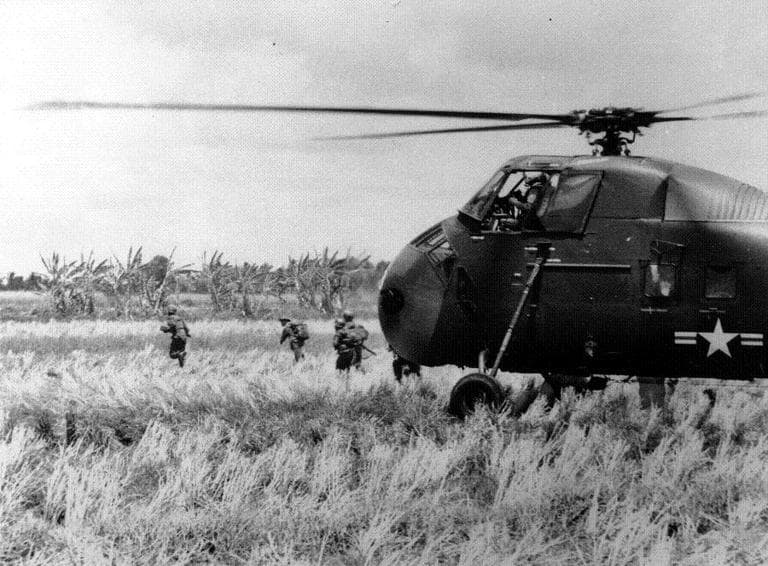Advertisement
The Consequences Of Combat
Resume
By: Alex Ashlock
Best-selling author and Vietnam war veteran, Karl Marlantes, can still see the eyes of a young North Vietnamese soldier standing before him with a grenade. Marlantes wanted to tell him, drop the grenade, I won't shoot, but he couldn't speak Vietnamese. The North Vietnamese soldier did not drop the grenade, so Marlantes squeezed the trigger. "He was just a kid like me," Marlantes says today.
Marlantes writes about the war in his fascinating new book, "What It Is Like To Go To War."
He grew up in the Pacific Northwest. His father served in World War II. Marlanteswent to Yale and joined the Marines in 1964. Three years later, he walked away from a Rhodes Scholarship at Oxford to fight in Vietnam, because he didn't want to sit on the fence while Marines he knew were dying. In 1969, Marlantes was dropped into the highland jungle of Vietnam as an inexperienced second lieutenant. He saw lots of combat, lost buddies, earned medals and when he came home a woman walked up to him and spat on him.
Marlantes was awarded the Navy Cross when he led a charge on North Vietnamese machine gunners at the top of a hill. He writes that of all the things he did that day, the one he's most proud of is that he stood up, and started zig-zagging his way up the hill toward the enemy bunker.
Like many veterans Marlantes had a lot of trouble coming all the way home from Vietnam. His body was a wreck, but what was happening to his mind might have been worse. He didn't really know he had a severe case of post traumatic stress disorder. Writing became a form of therapy. A novel he started in 1975, "Matterhorn," was finally published two years ago. "Black Hawk Down" author Mark Bowden called it the first great novel to come out of the Vietnam War. Author Sebastian Junger calls Marlantes' new work of non-fiction, "a staggeringly beautiful book on combat," that examines how American society views its warriors.
In the ancient past, Marlantes says, warriors prepared for war with rituals, religion and literature, and this also helped them return from battle. Today, he says, the military is so isolated from the rest of society that rituals never happen. He says the whole village doesn’t go to war anymore, and that’s a problem.
"I can remember when I was a kid, laughing at the Brits, because they hired the Hessians, they couldn't do their own fighting," he said. "We're moving fast in that direction. I don't think it's healthy for a republic. We need to stand up and take notice of where we are headed."
He also says we need to break the code of silence between the kids the country asks to do the fighting and killing and the rest of us.
"I didn't know my dad was in the Battle of the Bulge until I was 50," he says. "I said, 'Dad why didn't you talk about it?' He said, 'You never asked.'"
I think we just have to get brave and the loved ones of veterans are going to have to say them, 'I really want to know. I want you to come back in the family and talk about it.'"
- Here & Now Book Excerpt: "What It Is Like To Go To War"
Guest:
- Karl Marlantes, author of "What It Is Like To Go To War" and Vietnam War veteran
This segment aired on September 29, 2011.